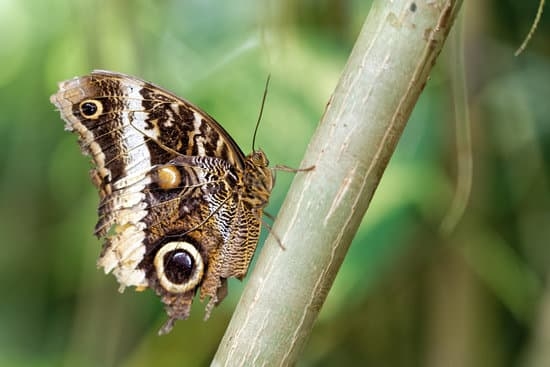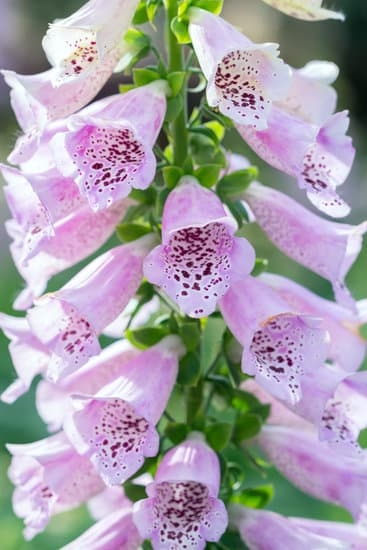Gardening ideas to prevent spiders are essential for those looking to maintain a spider-free garden. Understanding the common spiders found in gardens is the first step towards effectively managing and preventing these arachnids from invading your outdoor space. From orb-weavers to jumping spiders, knowing the types of spiders that may call your garden home can help you implement targeted prevention strategies.
Spiders play a vital role in ecosystems by keeping pest populations in check. However, having an abundance of spiders in your garden can be unsettling for some individuals. This article will explore the importance of preventing spiders in your garden while maintaining a balance between natural pest control and creating a comfortable outdoor environment for yourself and others.
From planting spider-repelling plants and herbs to utilizing essential oils and homemade sprays, there are various natural ways to deter spiders from entering your garden. By incorporating bird feeders and birdhouses as natural predators to spiders, along with landscaping techniques to create spider-free zones, you can enjoy a beautiful and peaceful outdoor space without the fear of encountering unwanted arachnids.
Importance of Preventing Spiders in Your Garden
Spiders are a common sight in gardens, with various species naturally inhabiting outdoor spaces. While many spiders are beneficial for controlling insect populations, some gardeners may find the presence of spiders unsettling or even fear-inducing. Understanding the types of spiders commonly found in gardens can help determine the best strategies for prevention and management.
The importance of preventing spiders in your garden goes beyond just aesthetic preferences. Some spider bites can be harmful to humans, while others may pose a risk to pets or beneficial insects. By implementing preventive measures, you can create a safer outdoor environment for yourself and your loved ones. Additionally, reducing the spider population in your garden can help maintain a sense of peace and comfort while enjoying your outdoor space.
To prevent spiders from entering your garden, consider implementing natural methods that are safe for both humans and the environment. One effective approach is to plant spider-repelling plants and herbs throughout your garden. These plants emit scents that deter spiders, helping to keep them at bay without the need for harmful chemicals. Consider incorporating plants such as lavender, mint, eucalyptus, or citronella around your garden beds or near seating areas where spiders are less welcome.
- Lavender
- Mint
- Eucalyptus
- Citronella
Another way to create a spider-free zone in your garden is through landscaping techniques that deter these arachnids from nesting or hiding. Clearing away debris, such as leaves or wood piles, eliminates potential hiding spots for spiders. Keeping grass trimmed and bushes pruned reduces areas where spiders can build webs undisturbed. By maintaining a well-groomed and tidy outdoor space, you can greatly reduce the likelihood of spiders making themselves at home in your garden.
- Clear away debris
- Keep grass trimmed
- Prune bushes regularly
Natural Ways to Deter Spiders From Entering Your Garden
Spiders are a common sight in gardens, and while they play a vital role in controlling pest populations, having too many of them can be unsettling for some gardeners. Understanding the common spiders found in gardens can help you identify which ones you want to deter and which ones you can allow to stay.
Some gardeners might be concerned about poisonous spider species like the black widow or brown recluse, while others simply prefer not to have an abundance of spiders crawling around their plants.
It is essential to prevent spiders from entering your garden not only for aesthetic reasons but also for practical purposes. Spiders can create unsightly webs that may detract from the beauty of your garden, and their presence might make it less inviting for you to spend time outdoors. By taking proactive steps to deter spiders, you can create a more pleasant environment that allows you to fully enjoy your gardening hobby without the distraction of arachnids.
One effective way to naturally deter spiders from entering your garden is by incorporating gardening ideas to prevent spiders such as planting spider-repelling plants and herbs. Certain plants like lavender, mint, eucalyptus, and chrysanthemums are known for their ability to repel spiders due to their strong scents.
By strategically placing these plants throughout your garden, you can create a natural barrier that spiders are less likely to cross. Additionally, harvesting these herbs and plants for culinary or decorative use adds a practical benefit to including them in your garden design.
Planting Spider-Repelling Plants and Herbs
When it comes to keeping spiders away from your garden, one effective method is planting spider-repelling plants and herbs. These natural deterrents can help create a barrier that spiders will avoid, leaving your garden free of these unwanted pests. Not only do these plants help keep spiders at bay, but they also add beauty and fragrance to your outdoor space.
Examples of Spider-Repelling Plants
One popular spider-repelling plant is lavender. The strong aroma of lavender not only deters spiders but also attracts beneficial insects like bees and butterflies. Other plants like mint, citronella, eucalyptus, and marigolds also have properties that repel spiders. By strategically planting these around your garden or in pots near entry points to your home, you can create a natural barrier against spiders.
Growing Herbs for Spider Prevention
In addition to plants, herbs like basil, rosemary, and chives can also help deter spiders from invading your garden. These herbs not only serve as great additions to your cooking but also have properties that repel spiders. Planting these herbs in raised beds or containers near windows or doors can help prevent spiders from entering your home through these common entryways. Consider incorporating these herbs into your garden design for added protection against spiders.
By incorporating spider-repelling plants and herbs into your gardening efforts, you can effectively prevent spiders from taking over your outdoor space. Not only will these plants help keep spiders away naturally, but they will also enhance the beauty and functionality of your garden. With a little planning and creativity, you can enjoy a spider-free garden filled with lush greenery and fragrant blooms.
Creating a Spider-Free Zone With Landscaping Techniques
Landscaping plays a crucial role in creating a spider-free zone within your garden. By strategically arranging plants, structures, and outdoor elements, you can effectively deter spiders from making themselves at home in your outdoor space. Here are some landscaping techniques that can help prevent spiders from entering your garden:
- Rock and Gravel: Incorporating rock or gravel pathways and decorative rocks into your garden design can discourage spiders from nesting. Spiders tend to avoid these rough surfaces, making it less appealing for them to settle in your garden.
- Trimmed Vegetation: Keeping shrubs, bushes, and trees well-trimmed and away from the house can prevent spiders from using them as a bridge to enter your outdoor space. Make sure there is ample clearance between greenery and your home’s exterior to minimize spider access.
- Mulch Alternatives: Instead of traditional mulch that can attract insects spiders feed on, consider using alternatives like cedar chips or pine straw which repel spiders due to their strong scent. This natural barrier can deter spiders from setting up residence in your garden.
In addition to these landscaping techniques, strategic placement of structures like bird feeders and birdhouses can also aid in keeping spider populations at bay. Birds are natural predators of spiders and include them in their diet, hence attracting them to your garden can help control the arachnid population naturally.
Overall, by combining these landscaping methods with other preventive measures like maintaining a clutter-free garden, planting spider-repelling plants, and using essential oils or homemade sprays, you can create a harmonious outdoor space free from unwanted eight-legged visitors. With a little effort and creativity, you can enjoy a spider-free garden while enhancing its aesthetic appeal through thoughtful landscaping practices.
Using Essential Oils and Homemade Sprays to Keep Spiders Away
Essential oils and homemade sprays are effective natural solutions to keep spiders away from your garden. These options are not only safe for the environment but also for you and your family. By utilizing these methods, you can repel spiders without resorting to harmful chemicals.
Essential Oils
Certain essential oils have strong scents that spiders find unpleasant, deterring them from entering your garden. Peppermint oil, tea tree oil, lavender oil, and citrus oils are known for their spider-repelling properties. You can create a DIY spray by mixing a few drops of these essential oils with water and a small amount of dish soap in a spray bottle. Simply spray this solution around your garden to keep spiders at bay.
Homemade Sprays
In addition to essential oils, there are other natural ingredients you can use to create homemade spider repellent sprays. A mixture of vinegar and water is effective in repelling spiders due to its strong odor. You can also combine garlic, onion, or chili powder with water to create a potent spray that spiders dislike. Regularly spraying these homemade solutions around your garden can help prevent spiders from making themselves at home.
Tips for Application
When using essential oils or homemade sprays in your garden, it’s important to reapply them regularly, especially after rainfall or watering. Focus on areas where spiders are likely to hide or build webs, such as corners, eaves, and window sills. By incorporating these natural solutions into your gardening routine, you can effectively keep spiders away while creating a pleasant outdoor environment for yourself and your loved ones.
Incorporating Bird Feeders and Birdhouses in Your Garden as a Natural Predator to Spiders
Birds are not only delightful to watch in your garden, but they can also serve as natural predators to spiders. By incorporating bird feeders and birdhouses strategically in your outdoor space, you can encourage birds to visit regularly and help keep the spider population in check. Birds such as bluebirds, wrens, chickadees, and swallows are known for their insect-eating habits, including spiders.
Placing bird feeders with seeds, suet, or mealworms can attract a variety of birds that feed on spiders and other garden pests. It is essential to position the feeders in open areas where birds have a clear view of their surroundings to feel safe while eating. Additionally, installing birdhouses at different heights and locations in your garden provides shelter for birds to nest and roost, creating a habitat that supports their presence throughout the year.
Moreover, different bird species have varied diet preferences; some birds may prefer insects over seeds. Offering a diverse selection of food options in your bird feeders can attract a broader range of birds with insectivorous appetites. By welcoming these feathered friends into your garden through thoughtful placement of feeders and houses, you can enhance the natural balance in your outdoor space and reduce the prevalence of spiders through eco-friendly means.
| Benefit | Example |
|---|---|
| Attracts diverse bird species | Bluebirds, wrens, chickadees |
| Creates natural predator-prey relationship | Birds feeding on spiders |
| Promotes biodiversity | Enhances natural balance in garden ecosystem |
Maintaining a Clean and Clutter-Free Garden to Prevent Spiders From Nesting
Keeping a clean and clutter-free garden is crucial in preventing spiders from nesting and thriving in your outdoor space. Spiders are attracted to areas with clutter, debris, and vegetation where they can easily build their webs and find shelter.
By regularly cleaning up fallen leaves, branches, and other organic matter in your garden, you can create an environment that is less inviting to spiders. It is also essential to remove any potential hiding spots for spiders such as piles of rocks, woodpiles, or old equipment.
In addition to regular cleaning, it is important to maintain a well-trimmed garden with properly pruned plants and bushes. Overgrown vegetation provides ample hiding spots for spiders to build their webs and lay eggs. By trimming back overgrowth and keeping plants neatly pruned, you can reduce the likelihood of spiders establishing nests in your garden. This not only helps prevent spider infestations but also enhances the overall appearance of your outdoor space.
Proper storage of gardening tools, equipment, and supplies is also essential in maintaining a clean and clutter-free garden. Spiders may seek refuge in dark, undisturbed areas such as sheds, garages, or containers left open around the garden. By organizing and storing your gardening items neatly and securely, you can minimize potential habitats for spiders to inhabit. Implementing these practices along with other gardening ideas to prevent spiders will help create a welcoming outdoor environment free from arachnid intruders.
| Benefits of Maintaining a Clean Garden | Preventing Spider Infestations |
|---|---|
| Enhanced visual appeal | Reduces hiding spots for spiders |
| Promotes plant health | Minimizes nesting opportunities |
| Prevents pest infestations | Creates an uninviting environment for spiders |
Conclusion
In conclusion, maintaining a spider-free garden can be easily achieved with the implementation of simple gardening ideas and practices. By understanding the common spiders found in gardens and the importance of preventing them, individuals can take proactive steps to deter these pests from entering their outdoor space.
Planting spider-repelling plants and herbs, utilizing natural deterrents like essential oils and homemade sprays, as well as incorporating bird feeders and birdhouses for natural predators are effective ways to keep spiders at bay.
Creating a spider-free zone through strategic landscaping techniques and ensuring a clean and clutter-free environment further enhances the success of preventing spiders from nesting in your garden. By following these tips and being consistent with maintenance routines, individuals can enjoy a beautiful and spider-free outdoor space to relax and unwind in. With a little effort and creativity, it is possible to coexist peacefully with nature while keeping unwanted arachnids away.
Ultimately, gardening enthusiasts can find joy and satisfaction in transforming their gardens into inviting spaces that are free of spiders. By implementing these gardening ideas to prevent spiders, individuals can create an environment that is both aesthetically pleasing and comfortable to spend time in. So go ahead, roll up your sleeves, put on your gardening gloves, and get started on creating your own spider-free sanctuary amidst nature’s beauty.
Frequently Asked Questions
What Is the Best Plant to Keep Spiders Away?
Peppermint is known to be an effective plant for keeping spiders away due to its strong scent that spiders find repulsive. By planting peppermint around your home or in pots indoors, you can naturally deter spiders from entering the area.
What Can I Put in My Yard to Keep Spiders Away?
To keep spiders away from your yard, consider planting lavender, eucalyptus, or citronella plants. These plants have scents that spiders dislike and can act as a natural deterrent. Additionally, keeping your yard free of clutter, debris, and overgrown vegetation can help reduce spider populations.
What Is a Natural Spider Deterrent?
A mixture of vinegar and water sprayed around entry points and areas where spiders may hide can act as a natural spider deterrent. Spiders are sensitive to strong scents like vinegar and will avoid areas treated with it. This is a non-toxic and eco-friendly option for spider control.

Welcome to my gardening blog! I am passionate about plants and enjoy sharing my knowledge and experiences with others. In this blog, I will write about everything related to gardening, from tips on how to get started to updates on my own garden projects.





